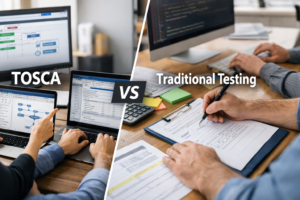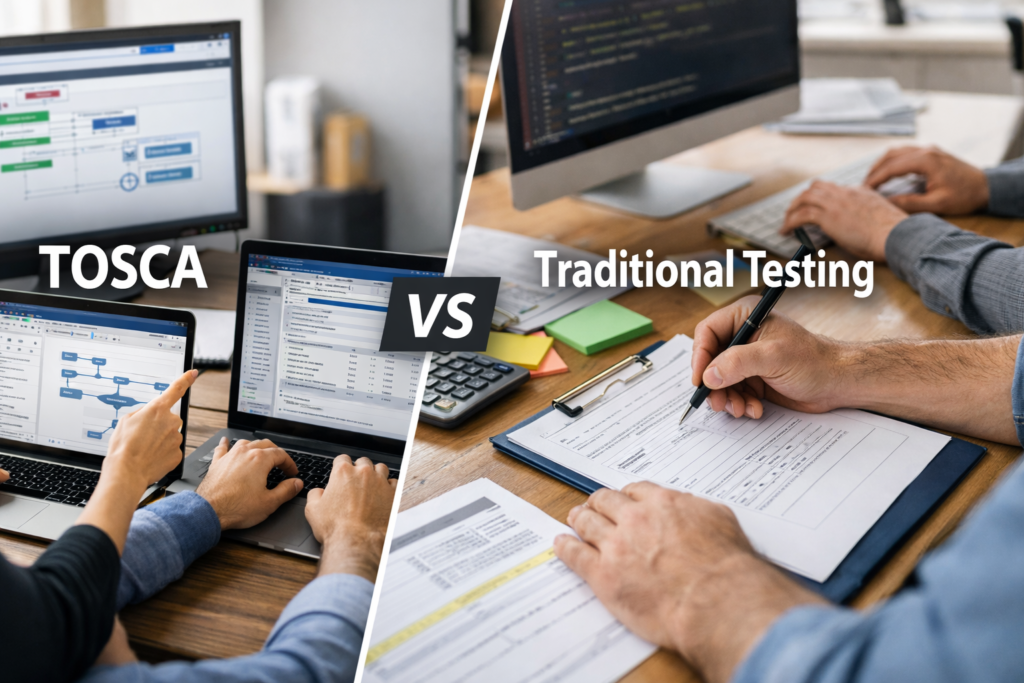In today’s competitive digital marketplace, automation is no longer optional it’s a strategic necessity. Businesses are continuously looking for ways to optimize efficiency, ensure compliance, and improve the overall customer experience. This is where Salesforce Business Rules step in, offering a robust framework for implementing reliable and scalable automation.
Whether you’re a new Salesforce admin, an IT professional considering a career switch, or someone enrolled in Salesforce training with placement, mastering Salesforce Business Rules can significantly boost your skill set and career prospects.
Introduction: Why Automation Matters More Than Ever
In the digital-first era, businesses must handle increasing volumes of customer data, multi-channel interactions, and real-time expectations. Manual handling of such tasks is inefficient and prone to errors. Automation improves speed, minimizes risk, and ensures consistent user experiences. That’s why platforms like Salesforce are in high demand.
Salesforce, the global leader in CRM solutions, is packed with features that empower businesses to automate their operations. At the heart of this automation lie Salesforce Business Rules. These rules allow organizations to create intelligent workflows, enforce data accuracy, and streamline decision-making across teams.
What Are Salesforce Business Rules?
Salesforce Business Rules are logic-based conditions that guide how data behaves, how workflows are triggered, and what actions should be taken under certain conditions. Think of them as invisible business enforcers ensuring your Salesforce platform works the way your company operates.
These rules are used to:
- Enforce data quality
- Trigger automated workflows
- Guide approval processes
- Streamline complex business operations
Types of Salesforce Business Rules
There are five core types of Salesforce Business Rules:
- Validation Rules: Prevent incorrect or incomplete data from being saved
- Workflow Rules: Automate routine tasks based on specific criteria
- Approval Processes: Ensure important changes go through the proper review
- Process Builder Rules: Enable complex, multi-step workflows
- Flow Rules: Provide visual and flexible automation paths
Understanding and mastering these rules is an essential step in becoming a proficient Salesforce professional, particularly for those engaged in Salesforce training classes or a Salesforce course designed for real-world applications.
The Role of Salesforce Business Rules in Automation
Business automation is all about reducing human intervention, minimizing errors, and speeding up processes. Salesforce Business Rules bring consistency and reliability to every operation. Here’s how:
- Ensuring Compliance: Validation rules ensure that data entered into Salesforce follows compliance standards.
- Streamlining Operations: Workflow rules automate repetitive tasks like sending emails or updating records.
- Enhancing Accountability: Approval rules ensure managerial oversight for sensitive operations.
- Optimizing Resource Allocation: Process Builder and Flow can assign tasks or cases to the right personnel based on dynamic rules.
Each rule type contributes to business agility, responsiveness, and scalability especially when coupled with expert guidance through Salesforce training with placement.
Benefits of Implementing Salesforce Business Rules
- Error Reduction: Automating business logic minimizes the chance of manual errors.
- Time-Saving: Routine tasks such as sending emails, updating fields, or assigning records can be automated.
- Cost Efficiency: Streamlined operations reduce the need for manual monitoring.
- Improved User Experience: Automation enhances system responsiveness and data quality.
- Better Data Governance: Business rules ensure that data adheres to organizational standards.
Businesses that implement Salesforce Business Rules correctly can expect improved productivity, faster turnaround times, and more effective team collaboration.
Real-World Scenarios: Applying Salesforce Business Rules
Example 1: Lead Assignment
A company wants leads from the healthcare sector to be assigned to a specialized sales team. A workflow rule can be created to detect when “Industry = Healthcare” and automatically assign the lead to the healthcare team queue.
Example 2: Opportunity Alert
Whenever an opportunity exceeds $100,000, an email should be sent to the sales director for review. A workflow rule or Process Builder logic can handle this seamlessly.
Example 3: Case Management
For customer service cases labeled “High Priority,” an approval rule ensures it is reviewed by a manager before being assigned to a rep.
Example 4: Data Entry Validation
A validation rule ensures that all phone numbers follow the same format (e.g., (XXX) XXX-XXXX). If not, users are prompted to correct the format.
These scenarios illustrate how Salesforce Business Rules drive productivity and accountability across departments.
Deep Dive: Core Components of Salesforce Business Rules
Validation Rules
Purpose: Ensure data entered into Salesforce meets defined conditions.
Syntax Example:
ISBLANK(Email)Use Case: Prevent saving a contact record without an email address.
Workflow Rules
Purpose: Automate actions based on changes in record status.
Possible Actions:
- Email Alerts
- Field Updates
- Task Creation
- Outbound Messages
Use Case: Notify managers when a large deal is closed.
Approval Processes
Purpose: Automate approval chains for important business actions.
Components:
- Entry Criteria
- Approval Steps
- Final Actions
Use Case: Require director approval for expenses over $5000.
Process Builder
Purpose: Create more complex, multi-step workflows than standard workflows.
Capabilities:
- Execute multiple actions
- Update related records
- Launch Flows
Use Case: On opportunity win, send email, update records, and assign a task—all in one rule.
Flow Rules
Purpose: Provide flexible, interactive, and visual automation paths.
Types:
- Screen Flows
- Auto-launched Flows
Use Case: Survey users after case closure to assess satisfaction.
Training Spotlight: H2KInfosys Salesforce Training
At H2KInfosys, our comprehensive Salesforce training programs are designed to give you a deep understanding of how to configure and automate using Salesforce Business Rules. Our curriculum includes:
- Hands-on exercises
- Real-world case studies
- Live instructor sessions
- Salesforce admin certification guidance
- Placement assistance
Whether you attend in-person Salesforce training near me or take online Salesforce classes, you’ll leave with practical, employer-ready skills.
Career Impact: Why Recruiters Value Rule-Based Automation Skills
Modern companies want Salesforce admins who can configure smart, automated solutions. Knowing Salesforce Business Rules means you can:
- Reduce customer churn
- Improve team productivity
- Maintain clean, usable data
- Design and implement scalable automation
Listing Salesforce Business Rules expertise on your resume immediately signals your value to potential employers.
Best Practices When Implementing Salesforce Business Rules
- Document Your Rules: Always maintain a record of rules implemented.
- Use Naming Conventions: Helps other admins understand your work.
- Test Extensively: Try rules in sandbox environments before deploying.
- Audit Regularly: Remove redundant or conflicting rules.
- Collaborate: Involve stakeholders to ensure rules meet actual business needs.
These practices ensure that your implementation of Salesforce Business Rules is both effective and maintainable.
Tools That Support Salesforce Business Rules
Salesforce offers a robust suite of tools that enhance your business rule automation:
- Reports and Dashboards: Monitor the performance and trigger results
- Chatter: Communicate changes and track activity history
- Email Templates: Ensure standardized communication
- Salesforce AppExchange: Access extensions and add-ons for advanced rule logic
When used in conjunction with Salesforce Business Rules, these tools deliver a full-featured automation ecosystem.
Common Pitfalls to Avoid
- Overuse of Hardcoded Values: Makes updates difficult
- Poor Testing: Can result in data corruption or incomplete automation
- Redundant Rules: Slow down performance and cause conflicts
- Ignoring User Experience: Don’t build rules that create friction
Avoid these pitfalls by learning best practices during your Salesforce training classes.
Salesforce Certification and Career Advancement
Certification is the next step after mastering Salesforce Business Rules. At H2KInfosys, we help you prepare for:
- Salesforce Certified Administrator
- Salesforce Advanced Administrator
- Salesforce Platform App Builder
These certifications increase your credibility and open doors to higher-paying Salesforce roles.
Final Thoughts and Key Takeaways
- Salesforce Business Rules form the foundation of intelligent CRM automation.
- Knowing how to build, test, and deploy these rules is essential for any Salesforce admin.
- Real-world applications range from lead management to case escalation.
- Our hands-on Salesforce training with placement gives you the confidence to build automation solutions employers want.
Conclusion: Learn. Automate. Advance.
Automation is not the future; it’s the now. With Salesforce Business Rules, you have the power to design intelligent workflows that scale as your business grows.
Enroll today in H2KInfosys’ Salesforce training course to master Salesforce Business Rules and step confidently into your tech career.


























